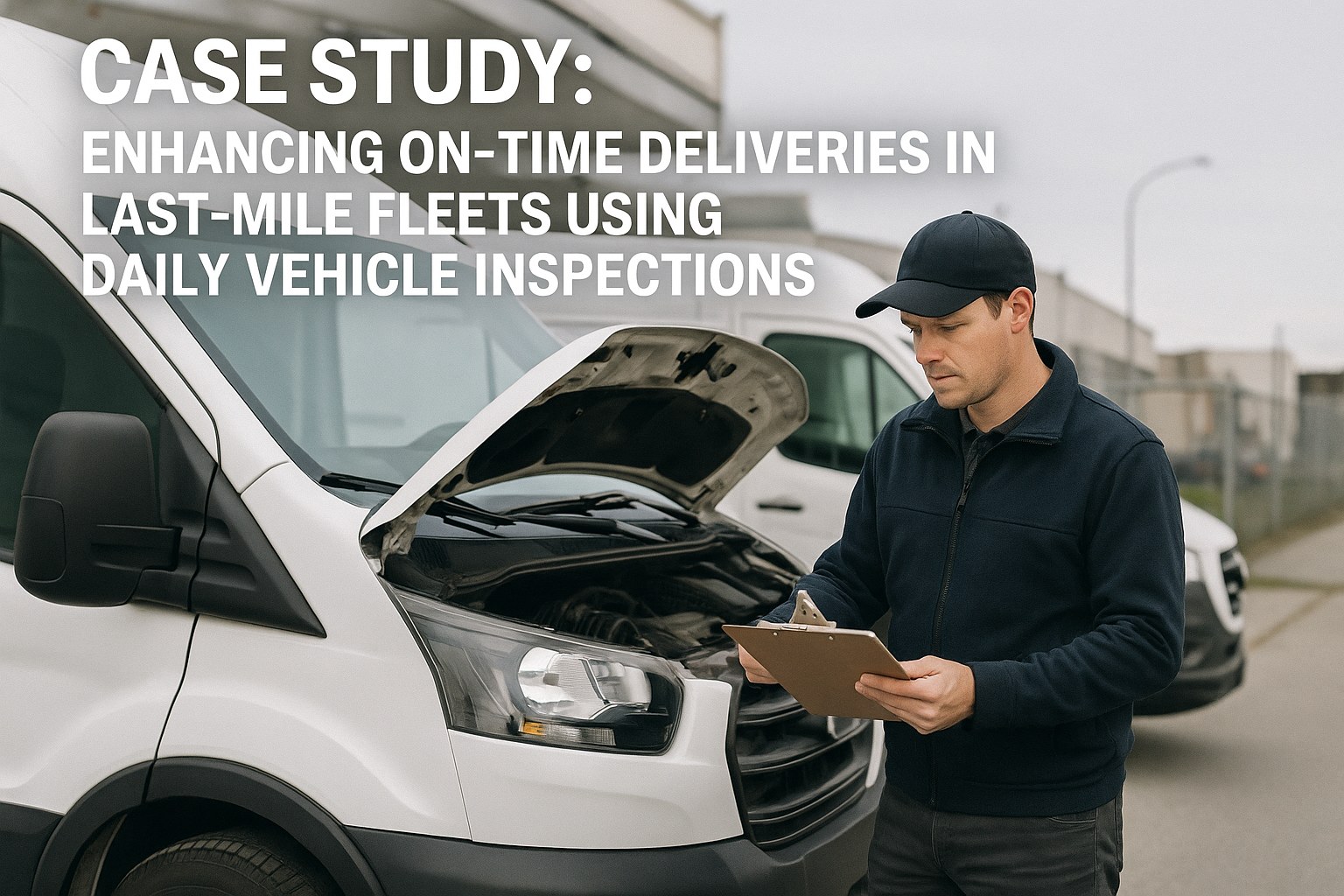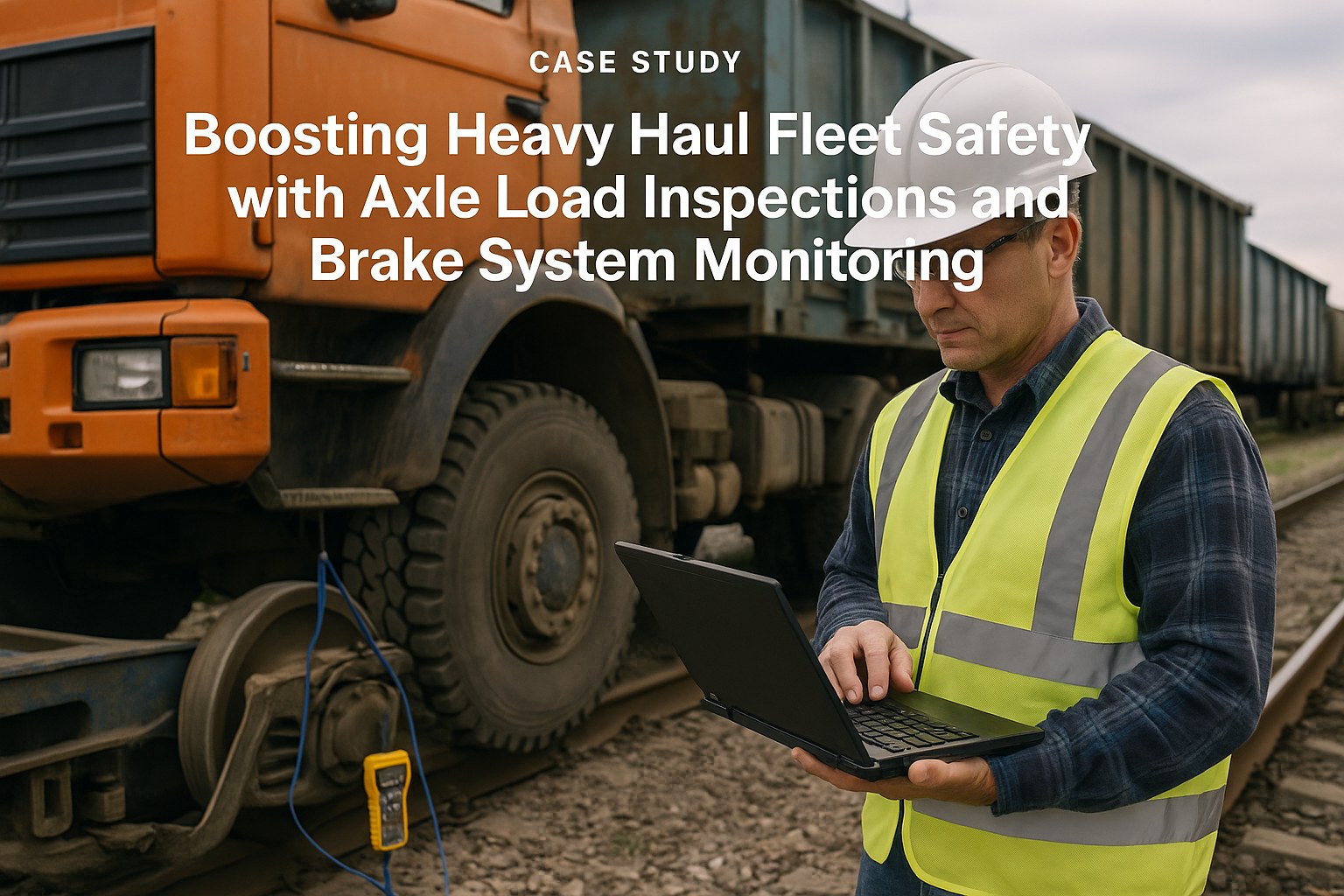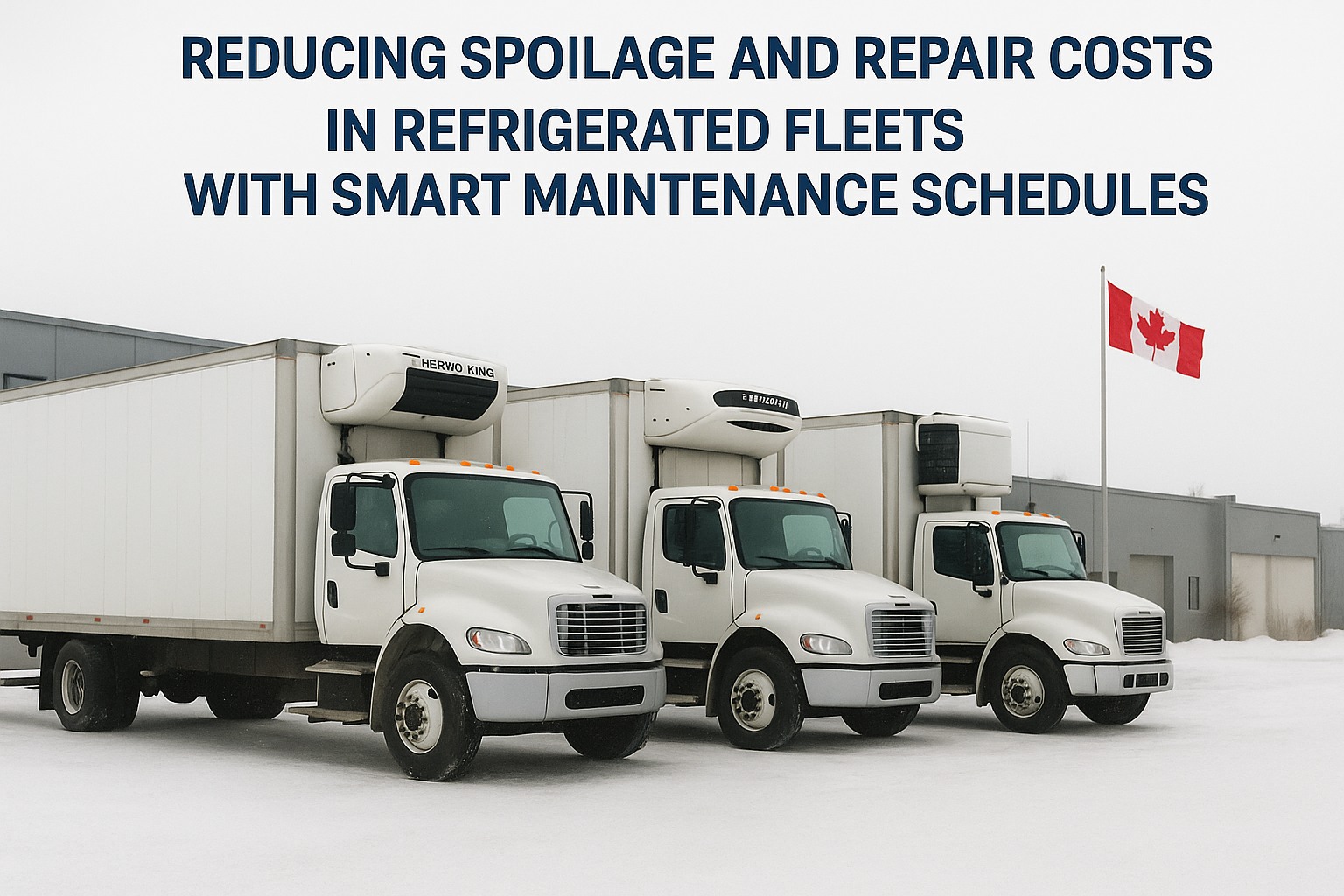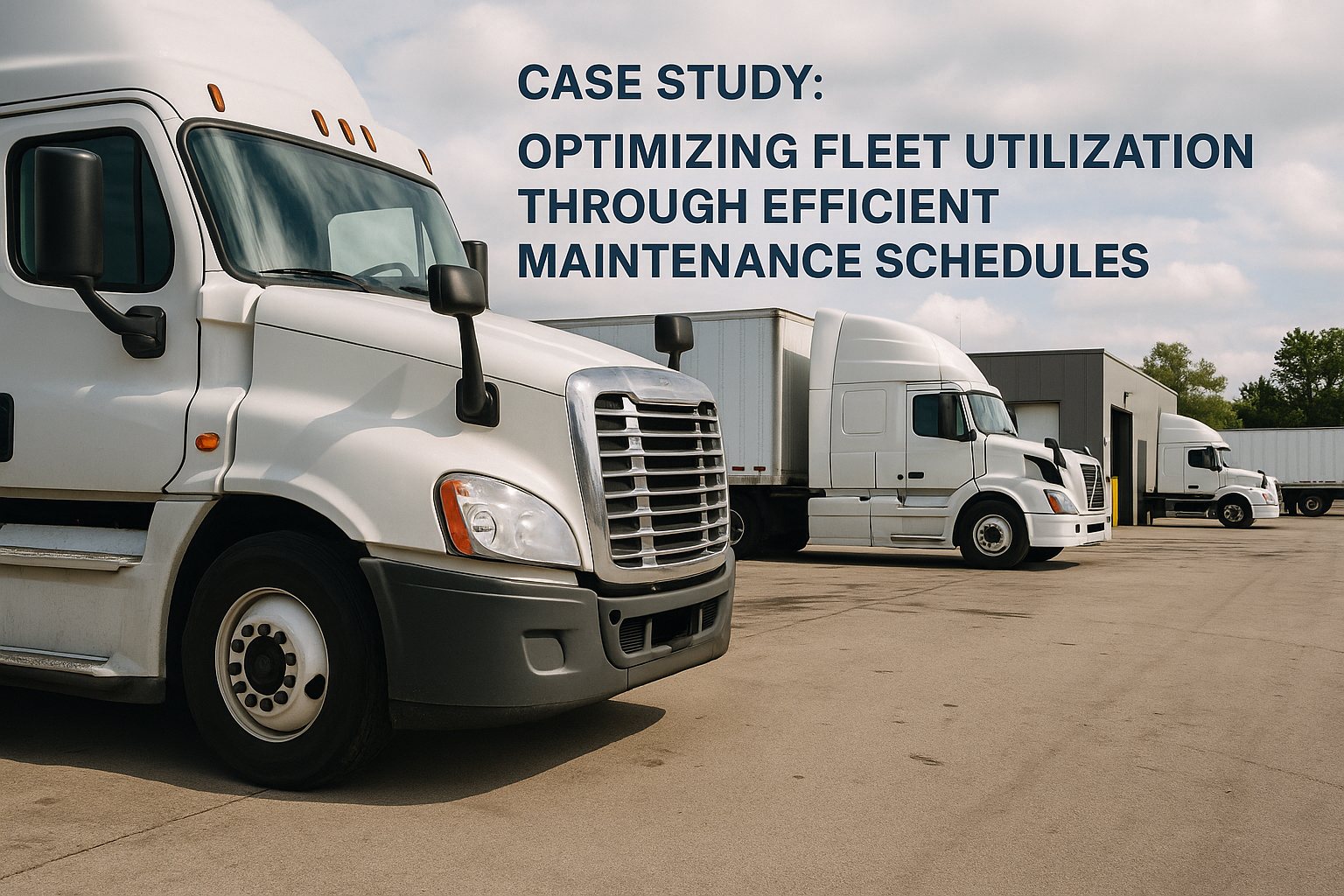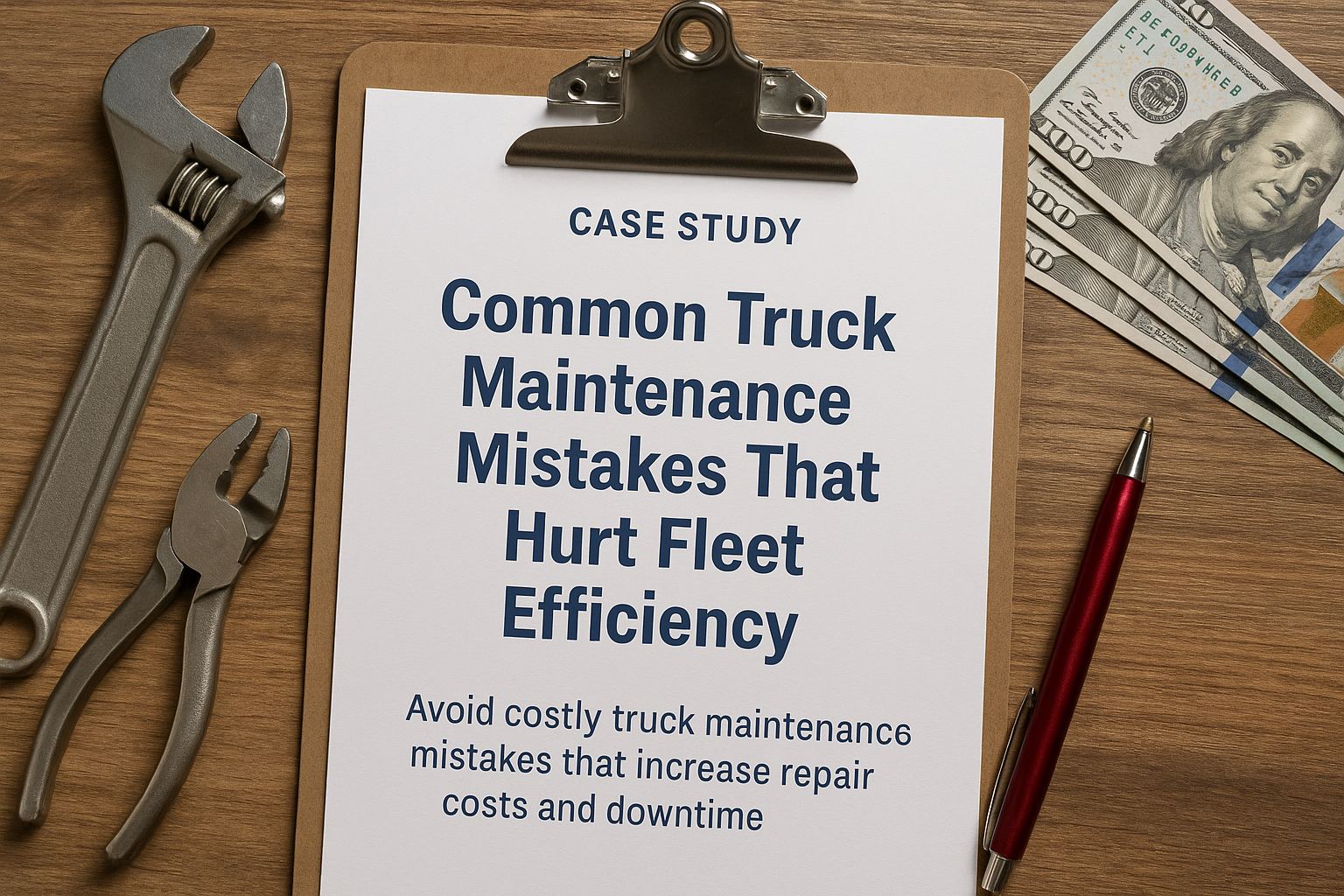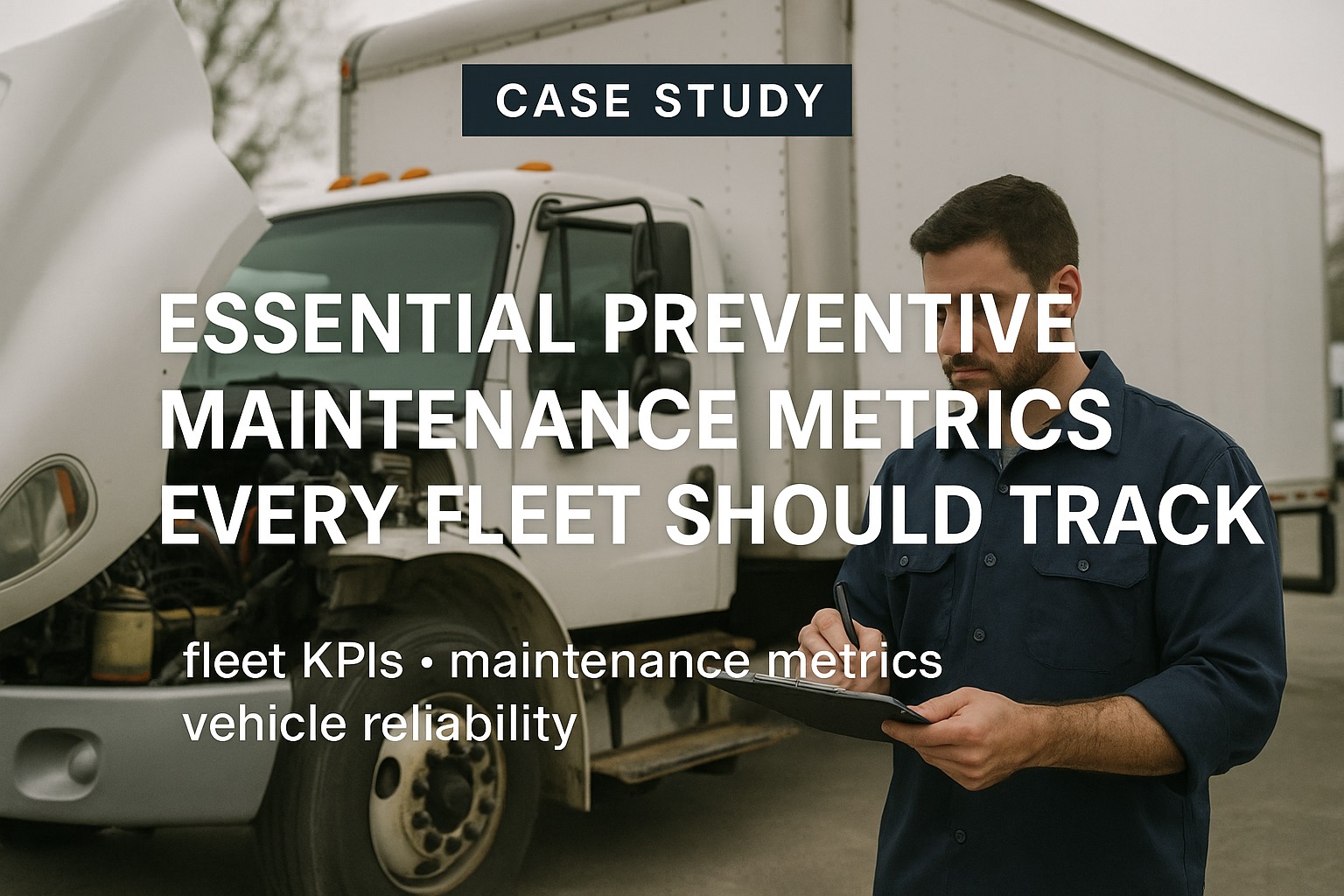In 2024, UK last-mile delivery fleets faced unprecedented pressure with 89% of consumers expecting same-day or next-day delivery, while vehicle breakdowns accounted for 23% of all delivery failures. For logistics operators navigating the £45 billion UK last-mile market, daily vehicle inspections have emerged as the critical differentiator between meeting customer expectations and losing market share. This comprehensive case study reveals how leading UK fleets transformed their on-time delivery rates from 78% to 97% through strategic implementation of daily walkaround checks and preventive maintenance programmes.
The intersection of regulatory compliance and operational excellence presents unique opportunities for last-mile operators. Much like healthcare facilities managing critical medical equipment through sophisticated maintenance systems, modern delivery fleets require equally rigorous inspection protocols to ensure reliability. The parallels are striking: both industries cannot afford downtime, both face stringent regulatory oversight from bodies like DVSA and CQC respectively, and both benefit tremendously from preventive strategies that maximise uptime whilst ensuring safety.
Consider the financial impact: A single vehicle breakdown costs UK last-mile operators an average of £1,200 in lost productivity, £450 in recovery charges, and potentially £5,000+ in contract penalties for missed delivery windows. Yet, companies implementing comprehensive daily inspection programmes report 20% fewer breakdowns, 97% on-time delivery rates, and customer satisfaction scores exceeding 4.8/5. This case study explores how three major UK delivery operators achieved these remarkable results.
Understanding UK Fleet Inspection Requirements: The Foundation of Delivery Excellence
UK commercial vehicle operators face a complex regulatory landscape designed to ensure road safety whilst maintaining operational efficiency. For last-mile delivery fleets, understanding and exceeding these requirements is the first step toward building a competitive advantage through superior reliability.
Critical UK Fleet Inspection Requirements:
- Daily walkaround checks (legal requirement under Road Traffic Act)
- 6-weekly preventive maintenance inspections (PMI)
- Annual MOT testing for vehicles over 3 years old
- DVSA Earned Recognition standards for exemplary operators
- Driver defect reporting and rectification procedures
- Brake testing requirements and safety inspection documentation
The parallels between fleet maintenance and healthcare equipment management offer valuable insights. Just as NHS trusts rely on comprehensive maintenance systems to ensure critical equipment availability, delivery fleets must maintain their vehicles with equal precision. Both sectors face life-safety implications, regulatory scrutiny from national bodies, and the imperative to maximise asset availability whilst controlling costs.
Case Study 1: Swift Logistics' Transformation to 97% On-Time Delivery
Swift Logistics, operating 350 vans across Greater London and the Home Counties, faced a delivery crisis in early 2023. With on-time rates hovering at 78% and customer complaints mounting, they implemented a revolutionary daily inspection programme that would become the industry benchmark for last-mile excellence.
The Challenge
Before transformation, Swift Logistics struggled with reactive maintenance practices that devastated their delivery performance. Their challenges included:
- Average of 12 vehicle breakdowns per week disrupting 180+ deliveries
- £25,000 monthly penalties from major retail partners for missed slots
- Driver turnover at 45% due to frustration with unreliable vehicles
- DVSA prohibition notices threatening operator licence status
- No systematic approach to daily walkaround checks
The Solution
Swift implemented a three-phase approach that revolutionised their inspection and maintenance practices, borrowing best practices from high-reliability industries and adapting them to last-mile delivery requirements.
Phase 1: Digital Daily Inspection Implementation
Swift deployed a mobile-first inspection app that guided drivers through comprehensive 15-point walkaround checks. The system automatically flagged defects, prioritised repairs, and ensured DVSA compliance whilst taking just 8 minutes per vehicle.
Phase 2: Predictive Maintenance Integration
By analysing inspection data alongside telematics information, Swift developed predictive models identifying vehicles likely to fail. This allowed proactive maintenance during off-peak hours, maximising vehicle availability during critical delivery windows.
Phase 3: Driver Empowerment Programme
Recognising that drivers are the first line of defence, Swift invested in comprehensive training. Drivers learned to identify early warning signs, conduct thorough inspections, and understood how their vigilance directly impacted delivery success and customer satisfaction.
Results and ROI
Within 6 months of implementation, Swift Logistics achieved remarkable results that transformed their market position:
- Delivery Performance: On-time rate improved from 78% to 97%
- Breakdown Reduction: Weekly breakdowns decreased from 12 to 2.4
- Financial Impact: £850,000 annual savings through avoided penalties and improved efficiency
- Customer Satisfaction: NPS score increased from 42 to 78
- Compliance Excellence: Achieved DVSA Earned Recognition status
Case Study 2: Urban Express' Innovation in Multi-Drop Efficiency
Urban Express, a specialist in London's congested delivery market with 200 electric vans, faced unique challenges delivering to 150+ drops per vehicle daily. Their innovative approach to vehicle inspections revolutionised multi-drop efficiency whilst ensuring perfect compliance.
The Innovation Approach
Urban Express pioneered a "Smart Inspection" system combining IoT sensors, driver apps, and AI-powered analytics. The system monitored critical components in real-time, alerting drivers to potential issues before they impacted deliveries. Their integrated approach ensured vehicles remained operational throughout demanding 10-hour delivery windows.
Key innovations included automated tyre pressure monitoring preventing 89% of puncture-related delays, battery health tracking for EV fleets ensuring full-day range reliability, and micro-inspections at delivery hubs catching issues mid-route. Their integration with route planning systems automatically adjusted schedules when maintenance was required, ensuring delivery commitments were met despite vehicle servicing needs.
Building Your Daily Inspection Programme for Delivery Excellence
Creating a world-class inspection programme requires more than compliance—it demands a systematic approach aligning safety, efficiency, and customer satisfaction. Based on insights from UK delivery leaders, here's a comprehensive framework for building your programme.
Step 1: Current State Assessment
Begin with a thorough evaluation of your existing inspection practices and delivery performance. This mirrors the approach high-reliability organisations take when implementing critical safety systems. Document your baseline metrics and identify improvement opportunities.
Assessment Checklist:
- Analyse 12 months of breakdown data and delivery performance
- Calculate true cost of vehicle failures including customer impact
- Review DVSA inspection reports and compliance history
- Assess driver skills and training requirements
- Evaluate current inspection tools and processes
- Benchmark against industry best practices
Step 2: Technology Selection
Choose inspection technology that balances compliance requirements with operational efficiency. Essential features include mobile apps with offline capability, photo documentation for defect reporting, integration with maintenance systems, and real-time dashboard visibility. The system should guide drivers through DVSA-compliant checks whilst minimising time impact on delivery schedules.
Step 3: Process Optimisation
Develop inspection processes that ensure thoroughness without compromising delivery windows. This includes pre-dawn inspection protocols for early deliveries, mid-day spot checks at distribution centres, and end-of-shift reporting procedures. Document everything—UK traffic commissioners require comprehensive records demonstrating systematic compliance.
Step 4: Culture Transformation
The most sophisticated systems fail without driver buy-in. Create a culture where inspections are valued as delivery enablers, not administrative burdens. Share success stories, recognise vigilant drivers, and demonstrate how thorough inspections directly improve their daily experience.
Advanced Strategies for Last-Mile Excellence
Leading UK fleets are pushing beyond basic compliance to achieve operational excellence through innovative inspection strategies. These advanced approaches separate market leaders from those merely meeting minimum requirements.
Predictive Analytics and Machine Learning
Modern fleets leverage artificial intelligence to predict component failures before they impact deliveries. By analysing patterns across thousands of inspections, AI systems identify subtle indicators human inspectors might miss. This approach, similar to predictive maintenance in aerospace, enables fleets to replace components at the optimal time—maximising life whilst preventing failures.
Integration with Route Optimisation
Advanced operators integrate inspection data with route planning systems. When a vehicle shows early warning signs, the system automatically adjusts routes to bring it near maintenance facilities whilst still meeting delivery windows. This seamless integration ensures maintenance never compromises customer commitments.
Collaborative Maintenance Networks
Forward-thinking companies are establishing collaborative networks with other operators, sharing maintenance facilities and mobile repair units. This approach, particularly effective in London and major cities, ensures rapid response to inspection findings without returning to distant depots.
ROI Analysis: The Business Case for Excellence
The financial benefits of comprehensive daily inspections extend far beyond avoided fines. A detailed analysis of 50 UK last-mile fleets reveals compelling returns on investment.
Average Annual Benefits per 100 Vehicles:
- Reduced Breakdown Costs: £287,000
- Avoided Delivery Penalties: £425,000
- Lower Insurance Premiums: £156,000
- Improved Fuel Efficiency: £89,000
- Enhanced Customer Retention: £620,000
- Total Annual Benefit: £1,577,000
Against an implementation cost of £125,000 and annual operating expenses of £85,000, the ROI exceeds 650% in the first year. These figures exclude intangible benefits like improved driver satisfaction, enhanced brand reputation, and competitive market advantages.
Common Pitfalls and How to Avoid Them
Even well-intentioned inspection programmes can fail. Understanding common pitfalls helps ensure your initiative delivers promised results whilst avoiding costly mistakes.
Top 5 Implementation Failures:
- Treating Inspections as Tick-Box Exercise: Focus on quality, not just compliance. Train drivers to truly examine vehicles, not rush through checklists.
- Ignoring Driver Feedback: Drivers know their vehicles best. Create channels for their input and act on their observations promptly.
- Poor Defect Response: Finding problems means nothing without rapid resolution. Ensure maintenance capacity matches inspection findings.
- Inadequate Documentation: UK traffic commissioners require detailed records. Invest in systems providing audit-ready documentation.
- Focusing Only on Major Components: Minor issues like worn wipers or dim lights cause delays too. Address everything affecting safety and reliability.
Future-Proofing Your Fleet for 2025 and Beyond
The last-mile delivery landscape continues evolving rapidly, with new challenges and opportunities emerging. Successful fleets build inspection programmes flexible enough to adapt whilst maintaining operational excellence.
Emerging trends shaping the future include electric vehicle-specific inspection requirements as fleets decarbonise, autonomous delivery vehicle preparation requiring new inspection protocols, and real-time health monitoring becoming standard across all vehicles. Environmental zone compliance adds inspection complexity in major cities, whilst customer expectations for delivery precision continue rising, demanding ever-greater reliability.
Your Roadmap to Delivery Excellence
Achieving 97% on-time delivery rates whilst ensuring perfect compliance isn't just possible—it's profitable. The case studies and strategies outlined demonstrate a clear path to transformation. Success requires commitment, investment, and recognition that daily inspections are the foundation of delivery excellence.
The parallels between fleet maintenance and other high-reliability industries offer valuable lessons. By applying proven principles to your last-mile operations, you can achieve remarkable results: enhanced safety, reduced costs, superior delivery performance, and delighted customers.
The journey to excellence begins with a single walkaround check. With the right strategy, technology, and team engagement, your fleet can join the ranks of UK operators who've transformed daily inspections from regulatory burden into competitive advantage.
Ready to Transform Your Delivery Performance?
Join leading UK last-mile fleets achieving 97% on-time delivery through strategic daily inspections. Discover how our comprehensive solutions can help you reduce breakdowns by 20%, ensure DVSA compliance, and delight customers with reliable service.
Getting Started Book a Demo